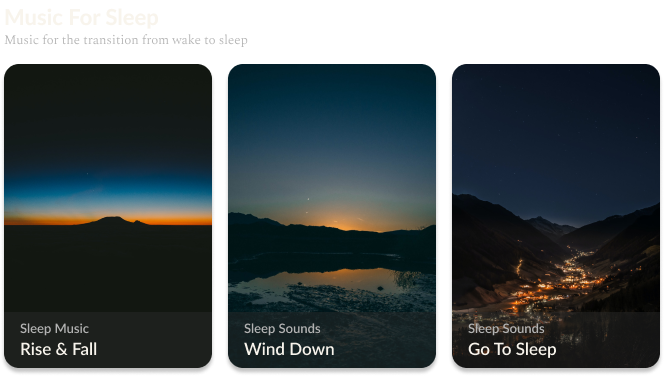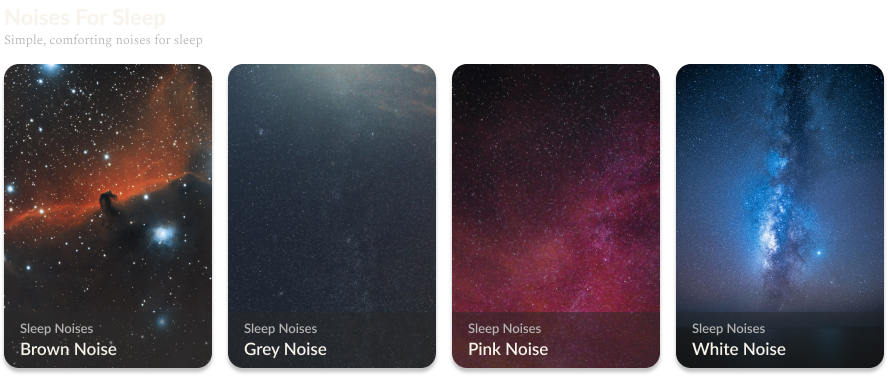There is something wonderful about deciding to go to bed, putting on some music, and falling asleep.
Music and sounds are so prevalent in our culture. You go to the store and there is music playing. You get into the car and there is music playing. You watch TV and there is music playing. It is everywhere.
It is is self-evident that music has the ability to change our emotional states. This is so clear when we listen to movie sound tracks. This music has been honed to create specific emotional responses. So music is a powerful thing.
This is why DreamWell offers music for sleep. We know that music can be a powerful way to change how you feel.
Music and Sleep

Music seems to help sleep. Well, if music helps you sleep, then music helps you sleep. It helps a lot of people fall asleep. There has been some research that explores why this would be the case.
Research on music and sleep
Listening to music has before bed has been shown to improve sleep quality (review article). It has been prescribed as a sleep aid in these research studies.
There has been one interesting research study that attempted to understand why music improves sleep quality. They listed 6 potential reasons:
- Music is relaxing
- Music is enjoyable.
- Music slows you down
- Music distracts you from worry and anxiety
- Music covers up annoying sounds
- You expect music to help
Music is relaxing
This reason is pretty simple. If you listen to relaxing music, then you will feel relaxed. If you feel relaxed, then it will be easier to sleep. It is as simple as that.
However, you should listen to music that actually relaxes you. If death metal relaxes you, then this type of music will help you sleep.
There was clear scientific support for this hypothesis.
Music is enjoyable
It is simply just enjoyable to listen to music. You tend to feel slightly happier when you can listen to music you like.
However, the researchers weren’t sure if the increase of mood and feeling slightly happier made sleeping easier or if being happy increased relaxation and it was the relaxation that made sleeping easier. Thankfully, for us, it doesn’t really matter.
Music slows you down
Actually, the scientific terms for this hypothesis is entrainment. This is the idea that brain activity will become synchronized to the tempo of the music. There is a specific genre of music called binaural beats that specifically aims to modulate brain activity.
From what we can tell, the science of this type of music is mixed. Some studies may show a benefit while others do not. This research study summarized a number of studies on this hypothesis and found limited or mixed support to enhancing sleep.
Our take is that this doesn’t really matter. There are very limited or no side effects to listening to music. If it helps you sleep, then whatever music you listen to is good for sleep.
Music distracts you from worry and anxiety
Often when we go to bed our minds start racing. We get caught up in stress thoughts. We get caught up in thinking about all of the work we have to do. Sometimes we have pain.
One reason why music can help you sleep is that helps to interrupt and distract from those unwanted thoughts and feelings.
Music covers up annoying sounds
Sometimes when we sleep our partner snores. Sometimes cars honk. Sometimes our upstairs neighbor decide walk around with boots. There can be annoying sounds that get in the way of sleep.
This is one reason why listening to music can help you sleep. You simply put on the music louder than the annoying sounds.
You expect music to help
The final reason the identified in this review is that music helps you sleep because you expect music to help you sleep. If you think music will help you sleep and you listen to that music, then you will be more likely to have better sleep.
A bedtime routine
Another research study identified a powerful reason why music can help you sleep. It helps you create a bedtime routine.
Routines can be very powerful. A number of years ago, I unintentionally started a bedtime routine. It started when I couldn’t sleep. I would try to sleep, but not be able to sleep. When that happened I would make a cup of herbal bedtime tea, read, and then try to fall back asleep.
Eventually, I starting making a cup of tea before bed. I would drink the cup, read, and fall asleep. I noticed that after time I had more and more tea left in my cup. It got to the point where I would make the cup of tea, take one sip, open my book, and be asleep.
To me, that speaks to the power of habit in helping create good bedtime routines. Music can play into this routine. If you listen to the same music or type of music every night, you’ll begin to associate that music with falling asleep. Over time it will be easier and easier for you to fall asleep and sleep well when you listen to that music.
But this might take time. Another review of sleep and music found that it takes 1-2 weeks of listening to music every night before sleep to really see an effect on sleep quality.
Sleep Noise

If music isn’t for you, DreamWell offers a variety of “noises” which are just simple frequencies to help you sleep. We offer white noise, brown noise, pink noise, and grey noise.
These can be effective to help you sleep because they will mask distracting sounds, help you create a bedtime routine, and can even be relaxing.
Sleep Sounds

Finally, DreamWell offers a wide variety of sleep sounds based in nature. These are a great balance between the sleep noises and sleep music. They are simple repetitive sounds that will help you sleep.
What to expect
DreamWell offers sleep music, so you can expect to simply find a track that you like while you sleep. The point is to sleep well, so we won’t be offended if you do not like it or if it doesn’t help you.
Our advice is to find what you like and stick with it for a while in order to create a great bedtime routine.





